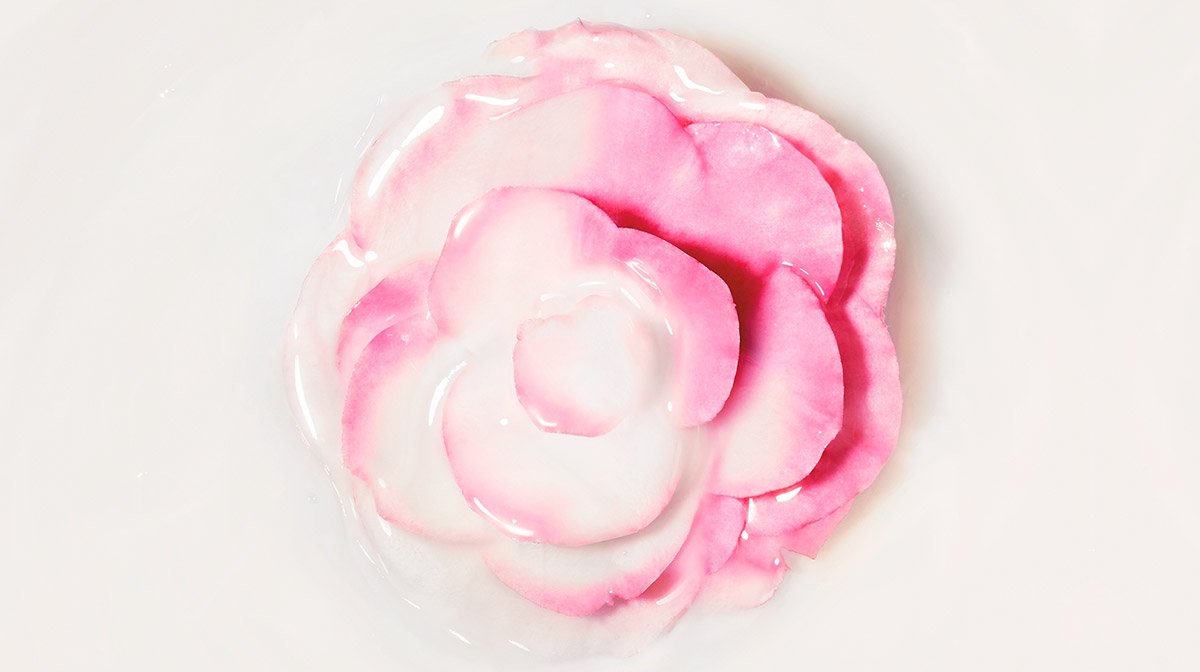‘Organic’, ‘natural’, ‘vegan’… You are no doubt familiar with these terms that are cropping up increasingly frequently in the beauty sector. But it’s not always easy to understand exactly what they mean. Our quick and easy guide will help you navigate the maze!
Natural or organic cosmetics: what are the differences?
Natural-origin cosmetics, a field in which NUXE has been a pioneer for 30 years, involves formulating beauty care products from ingredients found in nature. These natural-origin ingredients include water, of course, as well as botanical (algae, flowers, seeds, etc.) and mineral ingredients (from the earth, such as clay). To be classed as natural origin, at least 95% of a cosmetic formula must consist of these ingredients or derivatives.
So what does ‘organic’ mean? Only plants and crops cultivated according to organic farming principles and their derivatives (botanical oils, floral waters) can be classed as ‘organic’. Water or clay, however, can never be organic as these are not crops. Additionally, certain botanical ingredients cannot be organic, such as algae harvested at sea. Organic cosmetics must comply with a strict formulation charter that requires a minimum proportion of natural-origin ingredients and ingredients from organic farming, and must be certified by an independent certification body (such as Ecocert). The Cosmos charter, for example, requires 95% natural-origin ingredients and a minimum of 20% ingredients from organic farming.
What is the situation at NUXE?
Our care products contain an average of 88% natural-origin ingredients and many formulas exceed 95%. On our website, we also share completely transparently the percentage of natural-origin ingredients in each formula. For our certified organic NUXE BIO Organic skincare range, we have exceeded the requirements set by the standards, with an average of 99% natural-origin ingredients and 52% organic ingredients (compared with, for example, 20% required by the Cosmos charter).
Vegan cosmetics: a committed choice.
So what are vegan cosmetics? Let’s start by looking at the differences in meaning between ‘vegetarian’ and ‘vegan’. A vegetarian chooses not to consume any ingredients or food from animals (meat, fish, etc.). A vegan also avoids foods obtained from animals, such as honey, eggs and milk.
However, vegan actually means more than this. It’s a real lifestyle choice, a commitment to act against all forms of animal exploitation. These personal ethics influence many aspects of consumption: vegans do not wear fur and avoid leather, silk or wool clothing and accessories. They also choose vegan cosmetics, in other words, products formulated without ingredients or derivatives of animal origin and not tested on animals.
What is the situation at NUXE?
100% of NUXE products are vegetarian and 90% are also vegan. Only the Rêve de Miel® range contains beehive products (honey, wax, etc.). Reflecting our commitment to the protection of nature and animals, we have also been taking action to save bees by sponsoring beehives with the association ‘Un Toit pour les Abeilles’ [‘A home for bees’] since 2010, and by installing beehives in the Gardens of the Louvre Museum in Paris since 2018. Furthermore, we do not test either our finished products or their ingredients on animals, in compliance with the applicable European regulations.

